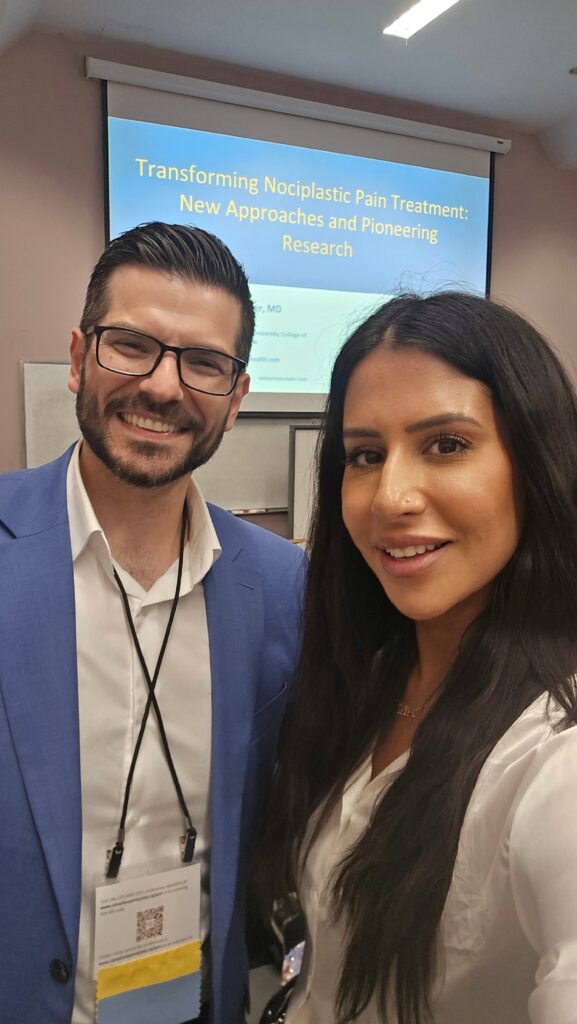Chronic Pain Research and Collaboration: Presenting Chiropractic Voices at the 45th Annual Scientific Meeting
May 1-4, 2025, the Canadian Pain Society hosted its 45th Annual Scientific Meeting at Victoria College on the University of Toronto campus, bringing together researchers, people living with pain, clinicians, and healthcare leaders committed to addressing one of the most pressing health issues facing Canadians today: chronic pain.


Among those in attendance were two Canadian chiropractors well-acquainted with the Canadian Pain Conference: Dr. Yaad Shergill and Dr. Demetry Assimakopoulos. Both have spent years bridging clinical practice and research in chronic pain. For them, the conference is an opportunity to share pain care perspectives, stay current with emerging evidence and strengthen interprofessional connections.
Dr. Shergill, a clinical researcher, practice owner and educator, presented on the role of virtual tools in chronic pain care, highlighting the Power Over Pain Portal. Created in partnership with The Ottawa Hospital, Women’s College Hospital, Sick Kids, Memorial University and Alberta Children’s Hospital, the Portal offers free, bilingual, evidence-based resources to help individuals manage chronic pain through self-directed strategies, with support from professionals when needed. “We’re giving people living with pain in Canada the tools to help themselves. This is about equity, access, and empowering people with chronic pain,” she said.
Meanwhile, Dr. Assimakopoulos’ poster presentation called for more inclusive ways to classify chronic pain. His work focused on expanding existing criteria to better reflect the real-world experiences of patients who don’t neatly fit into current diagnostic categories. As part of an interdisciplinary team at the Pain & Wellness Centre, Dr. Assimakopoulos sees firsthand how strong therapeutic relationships and clinical insight contribute to better outcomes. The conference is both a platform to share chiropractic expertise and a chance to learn from peers across healthcare because, “Chiropractors should be aware of what’s happening nationally. If we’re part of the healthcare system and pain is the number one thing we treat, then we need to be at the table,” he said.
Both speakers emphasized that chiropractic care is more than just manual treatment. It’s about contributing to a more comprehensive approach to healthcare through patient education, collaboration, and timely referrals, ensuring Canadians living with chronic pain receive the support they need.
Looking ahead, Dr. Shergill offered a message to the next generation of chiropractors and researchers:
“We need more early-career professionals in these conversations. Your voice matters, and your contributions can shape the future of pain care in Canada.”


Read More: